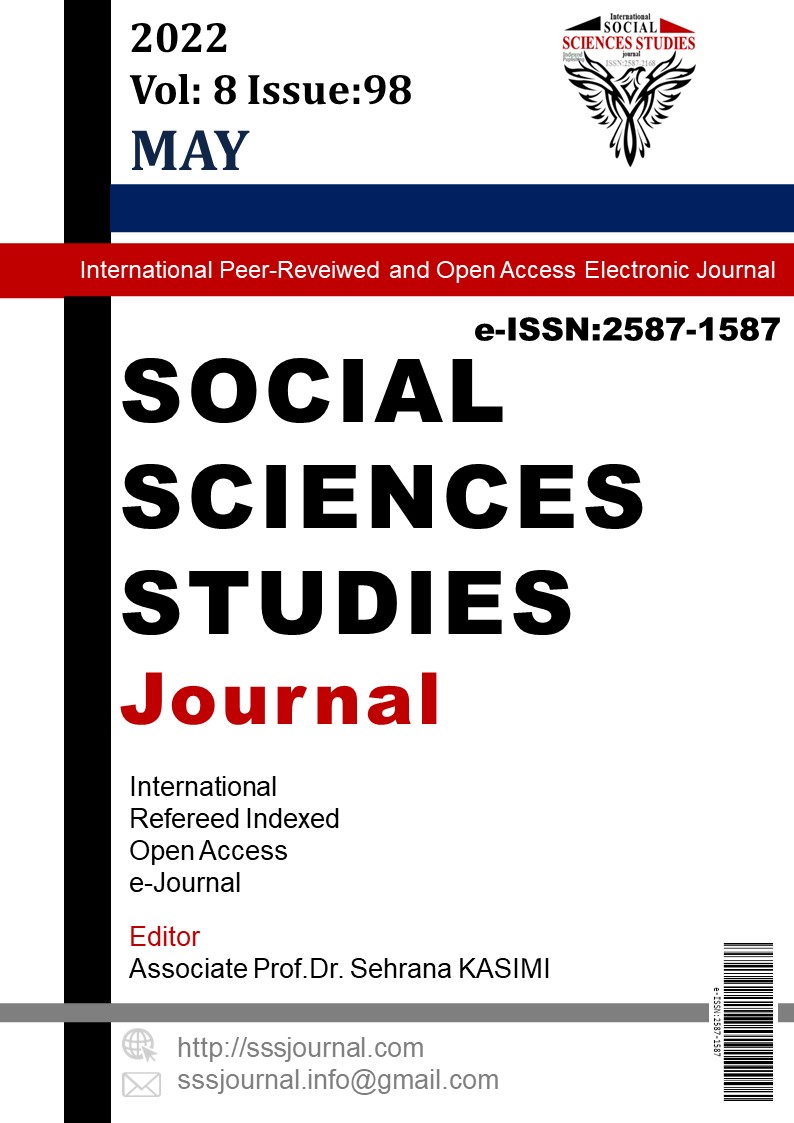Author :
Abstract
Fransız İhtilali ile tohumları atılan milliyetçilik kavramı ulusların özgürlüğü yanında bu özgürlüğü destekleyecek “sosyal, siyasî ve kültürel özerkliği kazanması” ana fikrinde temellenmiştir. Mısır’ın Napolyon istilasıyla başlayan Batı’yla teması, sadece ulusal bilincin oluşmasında değil söz konusu alanlarda farkındalık kazanılmasında da etkili olmuş, bu süreçte dinî, siyasî ve kültürel şartların haznesinde yoğrulan değişim, sürece dair yükselen farklı seslerin arasında yoluna devam etmiştir. Dünyanın küçük bir köy haline geldiği şimdiye kıyasla değişimin oldukça zor olduğu söz konusu yıllarda, din ve geleneğin etkisiyle oluşan direnci tahmin etmek zor değildir. Dönemin yeni formlarla oluşmaya başlayan edebi yazınında; tarihi literatürde birer madde olarak yer alan modernite araçlarının yaşamsal arka planını, değişimin çetin sürecini, bu sürece hâkim olan duygusal ve düşünsel atmosferi bulmak mümkündür. Bu anlamda Tâhâ Hüseyin’in ‘Edîb’ adlı romanı; toplumsal değişimin ana hatlarını, kültürel çatışma ve yozlaşmayı, moderniteye karşı toplumsal tavrı ortaya koyan önemli bir yapıttır. Söz konusu çalışma, süreci roman çerçevesinde değerlendirip toplumsal arka planına işaret etmeyi hedeflemektedir.
Keywords
Abstract
The concept of nationalism, the seeds of which were planted with the French Revolution, is based on the freedom of nations as well as the main idea of gaining social, political and cultural autonomy to support national freedom. Egypt’s contact with the West, which started with the Napoleonic invasion, kindled formation of national consciousness and awareness in aforementioned areas, and in this period, the transformation forged with various religious, political and cultural conditions continued on its way among a multitude of rising voices about the ongoing process. It is not hard to predict the resistance created by the influence of religion and tradition at those times when change was very difficult compared to now the world evolving into a small village. It is possible to find the background of everyday tools of modernity in historical literature, the arduous process of change, the emotional and intellectual atmosphere dominating this period in the literary works of the era which began to take shape with new genres. In this sense, Taha Hüseyin’s novel “Adeeb” (1935) is a significant masterpiece that exhibits the main outlines of social change, cultural conflict and corruption, and the social attitude against modernity. The given study aims to evaluate the process in the framework of the novel and point out its social background.
Keywords
- Year: 2022
- Year: 2022
- 30 March 2022Published
- 30 May 2022
- How to Cite This ArticleÇelenlioğlu, A. (2022).“Tâhâ Hüseyin’in EdîbAdlı Romanında Mısır





